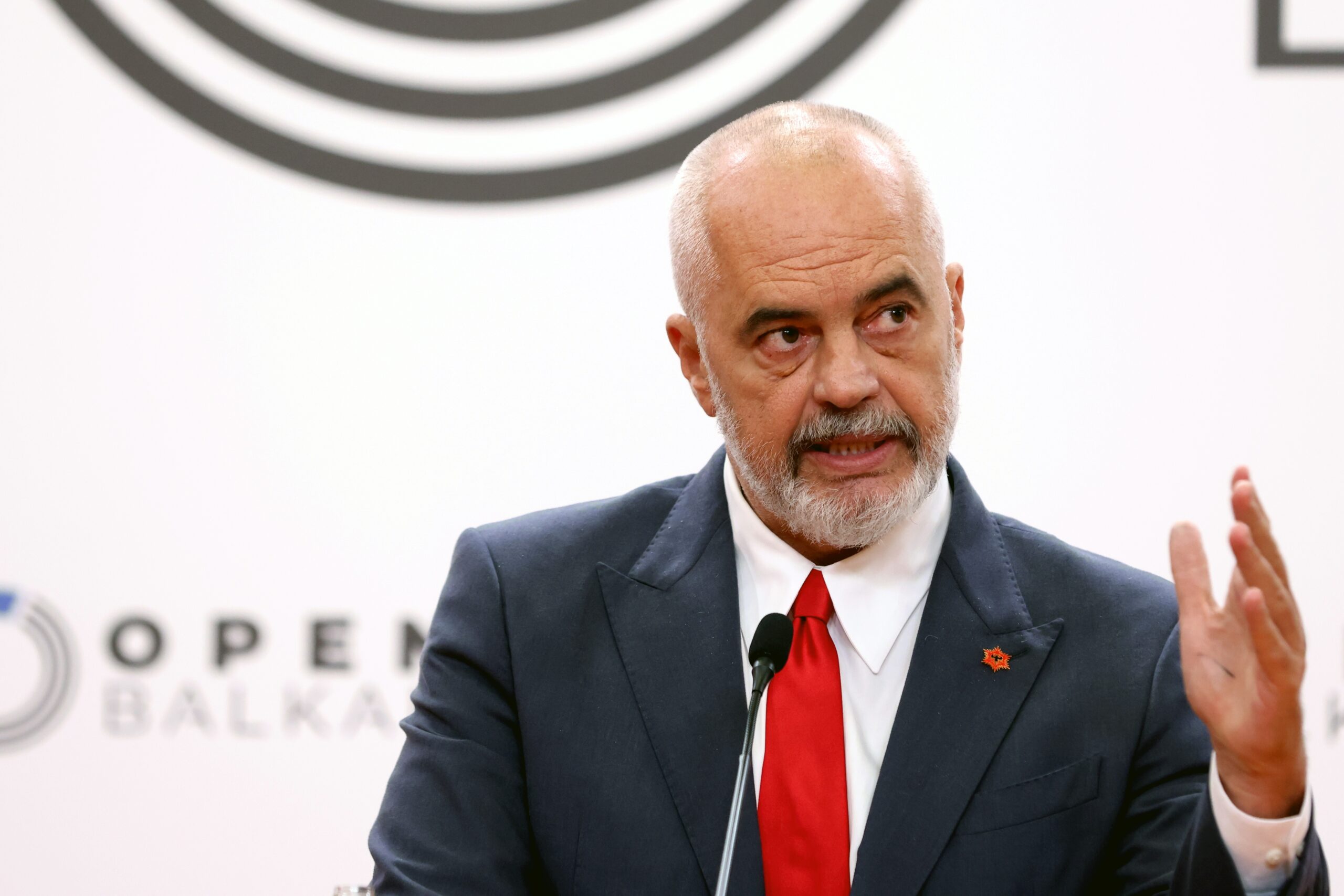Albanian Prime Minister Edi Rama dismissed six ministers and pitched replacements, and also asked the country’s president, Bajram Begaj, to adopt a corresponding decree in this regard. Rama has sacked the ministers of foreign affairs, agriculture, finance and economy, education, health care, as well as standards and services. The Albanian prime minister stressed that he owes nothing to any of the socialist high-ranking officials “who have issues with justice”, adding that none of them should hide behind the banner of the party he leads. Announcing the reshuffles during an informal government meeting, he added that the ruling Socialist Party and the government it leads will undergo self-reform.
At the session of the National Assembly of the ruling Socialist Party, Edi Rama announced the creation of a new ministry, noting that the change was reported President Bajram Begaj to pass a corresponding presidential decree. The Albanian Prime Minister dismissed the Minister of Foreign Affairs, Olta Xhaçka, and offered to appoint Igli Hasani, the former ambassador of Albania to the mission of the Organization for Security and Cooperation in Europe (OSCE) in Vienna. Xhaçka is leaving at a time when Albania has just taken over the presidency of the United Nations (UN) Security Council. Therefore, the new minister is expected to arrive in New York on September 14 to preside over UNSC meetings.
Minister of Agriculture Frida Krifca was also dismissed. Her office was taken over by Anila Denai, who had previously served in the government until 2021 as Minister of Economy and Finance. Delina Ibrahimaj will no longer lead the Ministry of Finance and Economy as she has been appointed Minister of State for Entrepreneurship to replace the sacked Edona Bilali. The Ministry of Finance and Economy will be headed by Ervin Mete, who was previously First Deputy Minister of Finance and later headed the Directorate of Financial Supervision.
Before the start of the new academic year, the Minister of Education, Evis Kushi, was dismissed from her post and replaced by Ogerta Manastirliu. Meanwhile, the position she left vacant at the head of the Ministry of Health is now occupied by Albana Koçiu, who was previously Director of the Department of Public Administration.
Edi Rama decided to merge the Ministry of Standards and Services, which was headed by Milva Economi, into a new ministry called the State Ministry of Local Government, which will be headed by Arbjan Mazniku, who currently serves as Deputy Mayor of Tirana.
The prime minister of Albania stated that “the main battle of the Socialist Party” is about the construction of a European Albania. Before that, Rama dismissed Minister of Internal Affairs Bledi Çuçi, replacing him for Taulant Balla. He
“There will be reorganization and reconceptualization,” Rama told the government meeting, explaining that the country will go through a significant increase in management capacity, emphasizing the role of first deputy ministers, engaging them in the process of state decision-making, as well as heads of important departments. The session of the National Assembly of the ruling Socialist Party approved changes to the secretariat. The shifts are expected to be endorsed by the party’s Congress in early October. Back in July, Damian Gjiknuri was removed from the position of the party’s general secretary to be replaced by Blandy Klosi, who, in turn, was replaced by Bledi Çuçi as head of the party’s parliamentary faction.
Edi Rama has been at the helm of Albania’s government since 2013. He has also been a leader of the Socialist Party since 2005. Before that, he had been Mayor of Tirana for 12 years, when he was recognized as the world’s best mayor. In addition to the prime minister, the government of Albania includes his deputy and 19 ministers. Obviously, the head of the government received certain tips on the “not-entirely-legal” activities of some of his ministers, so he immediately reacted with personnel reshuffles. Considering that the political nature of ministerial positions, some of the ministers were moved horizontally, that is, between ministries.
Over a decade of managing various governments, Edi Rama gained valuable experience, which he now employs to retain power of the executive branch, enjoying the full support of the president, who was nominated by the ruling Socialist Party last year before being approved in office by a 60% parliamentary majority. Back in 2017, Edi Rama’s government had 50% female ministers, championing such an approach across the entire Balkan Peninsula. The Albanian prime minister systematically adheres to European values and is not going to give them up when even someone from his closest political entourage violates them. With such actions, he also gained considerable authority in European institutions. In Brussels, he has successfully shaped for his country the image of a nation that belongs to the European civilization. Given that the issue of values and the rule of law cannot be the subject of compromise for the prime minister currently in office, it is expected that the country will keep moving along the path toward European integration and accession to the EU and fight corruption.



